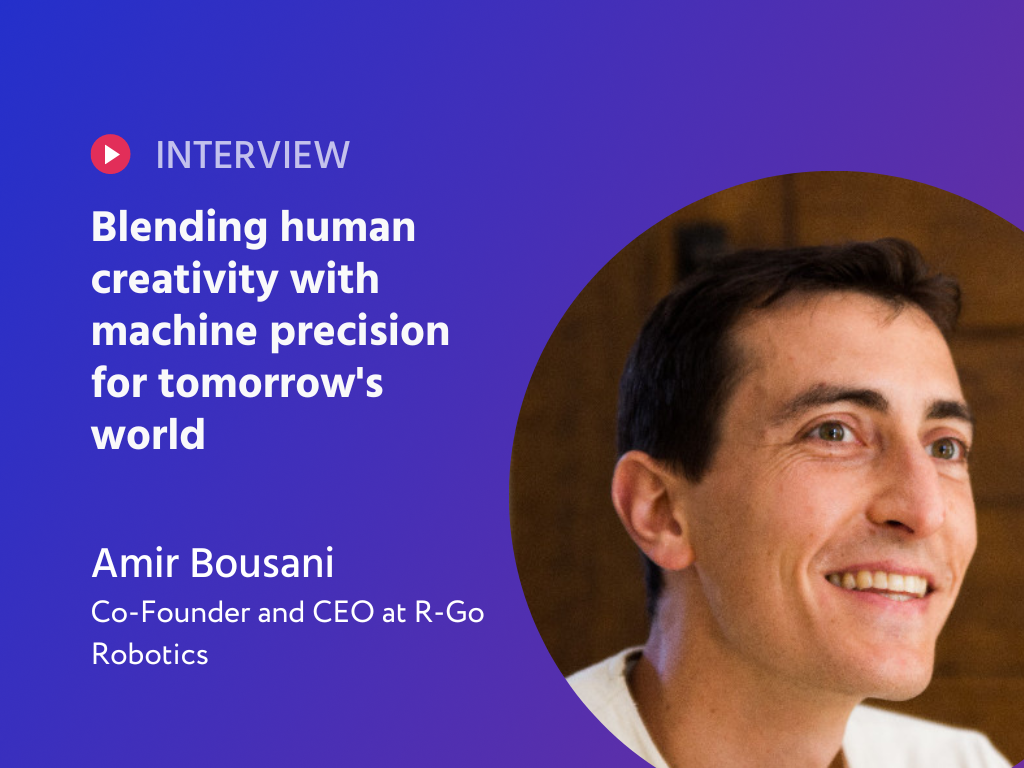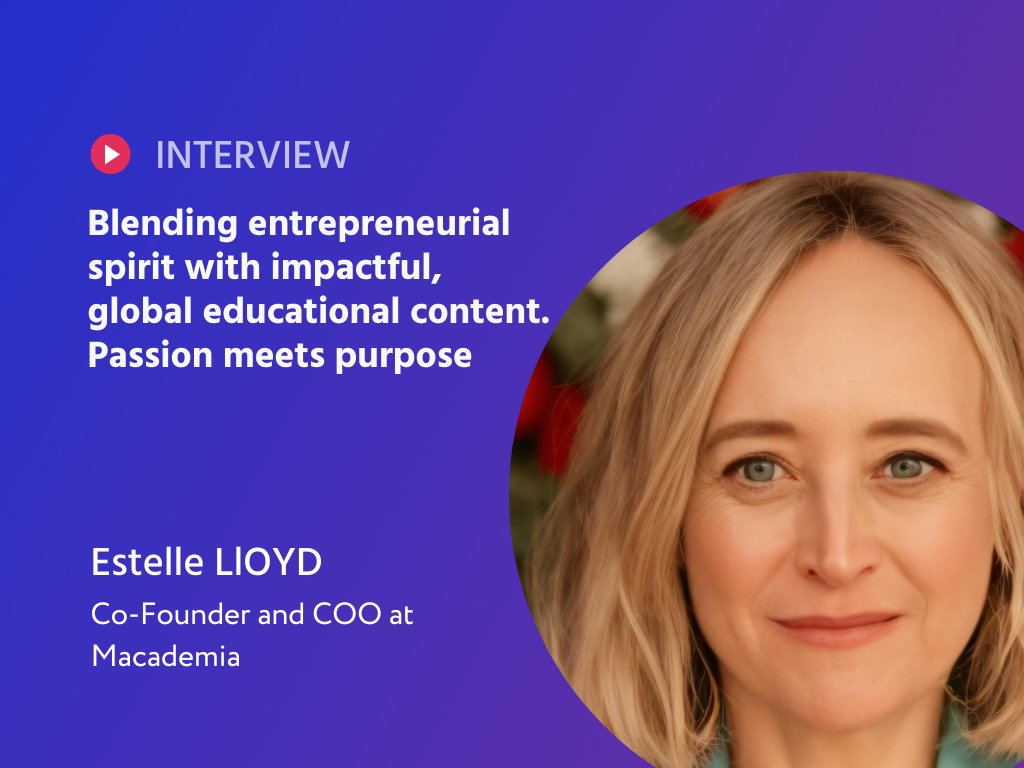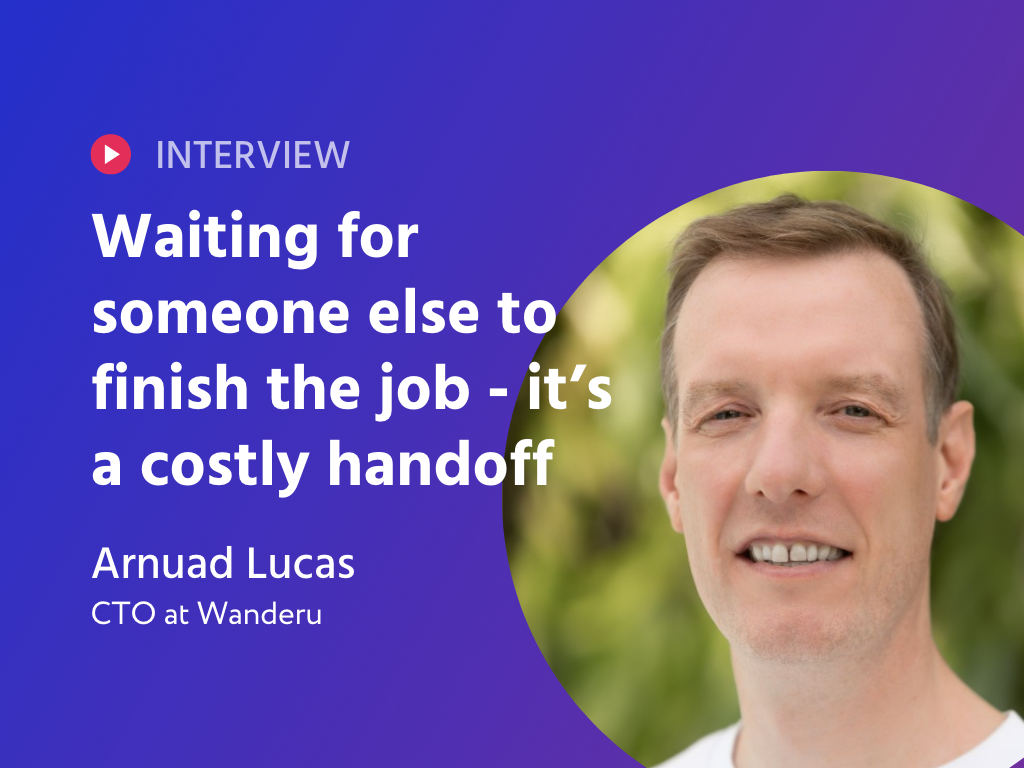At the crossroads of art, academia, and cutting-edge technology, Daniel Landau has forged a truly unconventional path to entrepreneurship. As the Co-Founder and CEO of AVRIS Technologies, Daniel brings a unique blend of creativity, scientific curiosity, and business acumen to the rapidly evolving world of virtual reality.
In this exclusive Bright Founders Talk at Temy, we sit down with Daniel to uncover how a career in digital media and performance art led to building products that shape the future of immersive experiences. With a PhD pursuit rooted in behavioral research and neuroscience, his journey from art professor to tech founder is nothing short of inspiring. Daniel shares how his interdisciplinary mindset enabled him to transition from crafting artistic narratives to solving real-world problems with VR. From collaborations with top academic institutions to partnering with global business schools like INSEAD, AVRIS is redefining how we engage with management education.
In our conversation, Daniel also reflects on the entrepreneurial instincts artists naturally carry—and how imagination, when grounded in purpose, can drive innovation. Join us as we explore the vision, challenges, and philosophy behind AVRIS Technologies and its remarkable founder.
From Artist to Entrepreneur: How VR and a Phone Call Sparked a New Venture
Most founders don’t start their journey with a paintbrush or on a theatre stage—but Daniel Landau isn’t most founders. Before stepping into the startup world, Daniel lived and breathed creative expression as a digital media artist, producer, and director. But everything changed when he stumbled into the world of virtual reality. What started as a creative tool quickly pulled him into deeper waters—behavioral research, neuroscience, and eventually, a PhD in Helsinki. “VR sucked me in,” Daniel said, laughing, as he traced the unexpected path from the art studio to the lab and then to the boardroom.
It wasn’t a grand plan that launched his startup journey—it was a simple phone call. A professor from INSEAD rang him up one day with a challenge: MBA students were tuning out of traditional case studies, and he believed VR could turn that around. Daniel listened. He realized this wasn’t just an academic curiosity—it was a real-world problem begging for a creative, immersive solution. And with that, AVRIS Technologies was born—blending his passion for storytelling, psychology, and tech into one powerful platform.
What makes Daniel’s story stand out is how naturally he blends creativity with business acumen. He sees entrepreneurship not as a departure from art, but as an extension of it. “Artists are the best entrepreneurs,” he told us. “We see two things and imagine how to bring them together.” Whether it’s mixing Playmobil with Lego as a kid or merging VR with management education today, Daniel’s always been about building something new. And with AVRIS, he’s doing just that—transforming how future leaders learn, one immersive experience at a time.
Artists are the best entrepreneurs
Why VR Isn’t About Escapism—It’s About Perspective
When Daniel Landau set out to bring virtual reality into classrooms, he wasn’t just chasing the hype. He was solving a real problem: how to make learning stick. Instead of asking students to slog through long case studies, he wanted them to step into the scene. “The case becomes experiential,” Daniel explained. “You’re not reading about a decision—you’re making it.” The difference is subtle but powerful. And while the idea sounds futuristic, it was grounded in something very human: helping people understand complex behavior through lived experience.
Of course, shaking up the system didn’t happen without resistance. After all, business schools are steeped in tradition—and switching from textbooks to headsets isn’t a small leap. But Daniel and his co-founder, a professor at INSEAD and expert in change management, weren’t naive. They knew it wasn’t just about building great tech—it was about designing a strategy for adoption. And as Daniel puts it, “Resistance is everywhere.” What helped? Crafting a thoughtful, guided experience that showed—not told—the value. The "aha" moments didn’t come from cool graphics; they came from carefully designed simulations that made learners question their own biases and assumptions.
Resistance is everywhere
But perhaps the most surprising thing Daniel discovered along the way? VR isn’t actually a great tool for traditional storytelling. It’s not about directing attention—it’s about creating space for exploration. “In 2D video, I control the frame. In VR, you’re free to look anywhere,” he said. That shift from control to freedom means storytelling in VR isn’t linear—it’s layered. It’s not about what you show, but how you design the environment to provoke insight. And when done right, it doesn’t just tell a story—it changes the way you see the world.
Why Age Doesn’t Matter in the Metaverse—and What Happens When AI Joins the Party
Daniel Landau is quick to break the myth that virtual reality is just for tech-savvy Gen Zers. Sure, younger generations might be more naturally open to digital immersion, but when the experience is thoughtfully crafted, even a 60-year-old exec walks away impressed. “It goes beyond age—when it’s done right, learners appreciate it a lot,” Daniel says. His team doesn’t just toss people into a VR headset and hope for the best. It’s an orchestrated experience—dip into a scenario, reflect, discuss, then dive back in with fresh perspective. It’s part story, part simulation, and all about active engagement. The tech fades into the background, letting the learning take center stage.
It goes beyond age—when it’s done right, learners appreciate it a lot
What’s even more exciting? The evolution from VR to AI. A few years back, Daniel and his team saw the writing on the wall—AI wasn’t just a trend, it was the next leap. So they started experimenting. First, they blended AI into their immersive VR case studies, letting learners talk to characters and receive dynamic responses. But then they took it further—transcribing those conversations to analyze thinking patterns and give real-time, personalized feedback. Suddenly, the case study wasn’t just a learning tool; it became a behavioral mirror. And with that came their next big leap: a fully AI-driven learning product that ditched the headset entirely.
For Daniel, that shift wasn’t just strategic—it was liberating. “Hardware is always difficult,” he laughs, and anyone who's wrestled with VR gear knows he's right. The new AI-powered platform opens the door to schools and companies that don’t have the setup for full XR experiences. And while AVRIS is still all-in on immersive learning, this pivot means they can now serve more learners, more flexibly. As AI continues to evolve, Daniel sees education and training as ground zero for transformation. And if the past few years are any indication, he and his team are just getting started.
From Startups to Mars: What Success Really Looks Like in the Eyes of a VR CEO
Innovation sounds sexy—until you’re knee-deep in hardware glitches, product decisions, and, worst of all… sales meetings. For Daniel Landau, the creative mind and CEO behind AVRIS Technologies, the toughest part of the journey wasn’t building the product. It was selling it. “Innovation is hard. Everything is hard,” Daniel says, but his face lights up when he talks about working with his team, brainstorming features, and crafting immersive experiences. The challenge wasn’t vision—it was finding people who loved the pitch as much as he loved the product. “Sales isn’t my DNA,” he admits, “so my job was to bring in people who are excited about sharing our work with the world.”
But if you think Daniel measures success by metrics alone, think again. Sure, keeping the lights on and scaling the business matters—he’s a CEO after all—but it’s the moments that fuel him. When learners put on a headset and suddenly find themselves navigating a boardroom in Africa or a conflict zone on Mars, everything clicks. “Seeing new ways of learning actually accepted and scaling… that’s success,” he says. And those kinds of sessions aren’t just impressive—they’re transformative. For Daniel, that’s the real ROI: shifting how humans learn in a world that desperately needs more than just PowerPoint slides.
Seeing new ways of learning actually accepted and scaling… that’s success
So what advice does he have for the next wave of founders? Brace yourself. It’s not a sprint, it’s a marathon—with blind curves, dead ends, and your own ego sometimes getting in the way. “Be prepared for a really long journey,” Daniel says. Passion matters, but so does patience. The real test isn’t how brilliant your product is—it’s how willing you are to evolve when the world doesn’t see it the same way you do. Entrepreneurship isn’t about adrenaline—it’s about endurance. And from the sounds of it, Daniel’s just getting warmed up.




